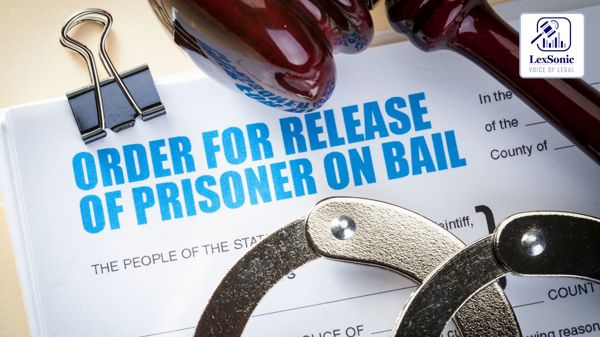Navigating the Boundaries of Bail: Supreme Court Ruling on Excessive Conditions.
25 October 2024
Bail and Antcipatory Bail >> Criminal Law | Criminal Appeals & Suspension of Sentence >> Criminal Law
In a significant ruling of Ramratan Ramswaroop & Another v/s The State of Madhya Pradesh, the Supreme Court of India addressed the complexities surrounding bail conditions in the case of Criminal Appeal SLP(Criminal). The appeal stemmed from a July 25, 2024, order issued by the High Court of Madhya Pradesh, which granted bail to the appellants under specific conditions that raised concerns about their legality and reasonableness. 
Background of the Case:
The appellants were embroiled in a legal dispute following an FIR lodged on April 22, 2024, alleging various offenses under the Indian Penal Code, including assault and trespassing. The complaint detailed how the appellants, along with others, allegedly forced their way into the complainant’s property, leading to their arrest on April 27, 2024.
Initially, the appellants' bail application was dismissed, but after the chargesheet was filed, they sought bail again. The High Court granted their request but imposed conditions that included the removal of a wall constructed by the appellants and the immediate transfer of property possession to the complainant, Mr. Ghanshyam Lashkari.

Legal Controversy Over Bail Conditions:
The appellants challenged the High Court's conditions as excessive and beyond the appropriate scope of bail proceedings. Their counsel argued that the imposed requirements were not only unreasonable but also interfered with ongoing civil litigation regarding the disputed property.
The State of Madhya Pradesh also expressed concerns about the High Court's encroachment into civil matters, emphasizing that the order could adversely affect the rights of the parties involved in a pending civil suit concerning property ownership.
The Supreme Court's Analysis:
Upon reviewing the case, the Supreme Court emphasized that the fundamental purpose of bail is to ensure the accused's presence during trial. The Court stated that any conditions attached to bail must be reasonable and directly linked to this goal. Drawing on precedent, the Court highlighted that the discretion of a court in imposing bail conditions should be guided by justice and fairness.
In its observations, the Supreme Court underscored the following points:
Limits of Judicial Discretion: The Court noted that while the judiciary has the authority to impose conditions for bail, these should not extend to resolving civil disputes or imposing undue burdens on the accused.
Lawful Possession: The Supreme Court criticized the actions of the police in taking possession of the property, which it deemed as lawlessness. It reiterated that the police should not interfere with civil rights without proper legal authority.
Protection of Civil Rights: The conditions imposed by the High Court were found to infringe upon the civil rights of the appellants, thus warranting a reevaluation.
Conclusion and Implications:
The Supreme Court ultimately set aside the onerous conditions imposed by the High Court, allowing the appellants to continue on bail under more reasonable terms. The judgment reaffirms the principle that bail conditions should not serve to resolve civil disputes but should focus solely on ensuring the presence of the accused at trial.
This ruling not only clarifies the bounds of judicial discretion in bail matters but also serves as a reminder of the delicate balance between criminal proceedings and civil rights. As the legal landscape continues to evolve, this case will likely resonate in future bail applications and underscore the importance of reasonable judicial oversight.
